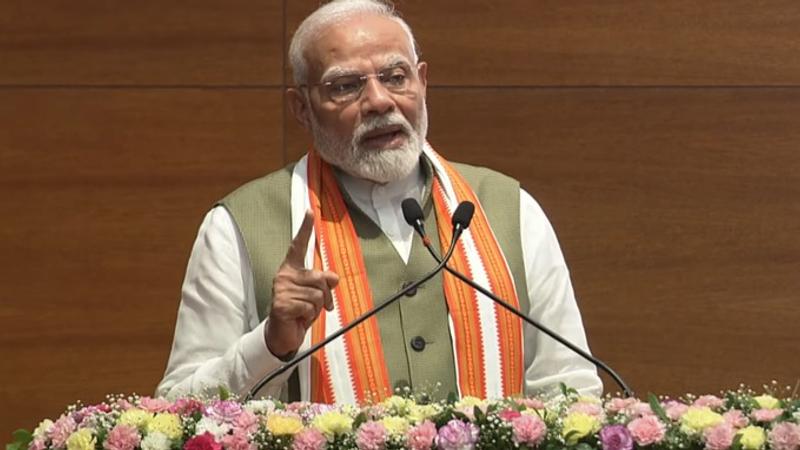Published 00:11 IST, September 16th 2024
'One Nation, One Election' to be Implemented During Modi's Current Term: Source
The BJP-led NDA government will implement 'one nation, one election' within its current tenure, sources said on Sunday.

New Delhi: The idea of 'One Nation, One Election' under discussion for a long in the corridors of parliament will be implemented during the current tenure of the NDA government led by Prime Minister Narendra Modi , sources have said, exuding confidence that the reform measure would receive support across party lines.
As the third term of the NDA government led by Prime Minister Narendra Modi completes 100 days of its third term, sources say that unity within the ruling alliance will remain strong for the rest of its tenure.
NDA Govt Confident of Passing Reform During Current Tenure
“It will definitely happen within this term. It will become a reality,” one source, who wished to remain anonymous, stated.
Prime Minister Narendra Modi highlighted the idea of "One Nation, One Election" in his Independence Day speech this year, and the government is committed to making it happen, according to sources. A committee, led by former President Ramnath Kovind, has already submitted its report, recommending simultaneous elections for the Lok Sabha and state assemblies as the first step. This would be followed by synchronizing local body elections within 100 days.
Law Commission Expected to Endorse Proposal for 2029 Timeline
The Law Commission is also expected to back this proposal, suggesting that by 2029, elections for all levels of government Lok Sabha, state assemblies, and local bodies like municipalities and panchayats should be held at the same time. The proposal includes provisions for dealing with situations like hung houses or no-confidence motions.
Critics Raise Constitutional and Logistical Concerns
In his recent speech, PM Modi argued that frequent elections were hindering the country's progress and called on the nation to support this initiative. The BJP had also included "One Nation, One Election" in its manifesto, and government sources hope to gain consensus from all political parties, despite strong opposition from some quarters.
Critics have raised concerns about constitutional challenges and the logistical issues of syncing electoral cycles without disrupting governance. There is uncertainty about how situations like the dissolution of Houses, President’s Rule, or a hung assembly would be handled. Regional parties have also voiced concerns that their limited resources could make it difficult to raise local issues during national election campaigns.
High Cost of EVMs Sparks Debate Amid Economic Concerns
Another point of debate is the cost of electronic voting machines (EVMs), with the Election Commission estimating a recurring cost of around ₹10,000 crore every 15 years to procure them.
Updated 00:11 IST, September 16th 2024




